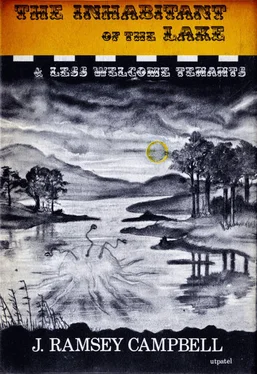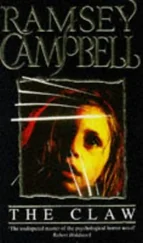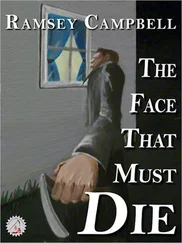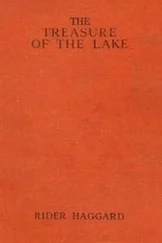Occasionally he refers to the object he thinks he saw. Over the years he has mentioned details which would suggest something incredibly alien, but of course it must have been something else which unbalanced him. He speaks of "the snailhorns," "the blue crystalline lenses," "the mobility of the faces," "the living flame and water," "the bell-shaped appendages," and "the common head of many bodies."
But these periods of comparative coherency do not last long. Usually they end when a look of horror spreads over his face, he stiffens and screams something which he has not yet explained:
"I saw what it took from its victims! I saw what it took from its victims! "
Few outsiders passed through the Mercy Hill area of Brichester at the end of the first World War, for it was notorious for crime, and routes through it led nowhere important. Those who entered that area of narrow streets and tall red-brick houses with their hostilely peering tenants might vaguely notice that the streets toward the hilltop, around the hospital, were less crowded and dirty; but that was all. Hardly any remarked the desertion of Victoria Road as a thoroughfare, and the furtiveness of the tenants in the buildings there; but, of course, they were outsiders. Nobody living on Mercy Hill would have gone down Victoria Road so nonchalantly. For everyone in the area knew that Gladys Shorrock, who lived at no. 7 in that road, was a witch.
She had come to no. 7 in the late 1910’s with her son Robert, and soon after they had settled in the dull red-brick house everybody knew what she was. Nobody noticed the lesser details at first, until later when they assumed a new importance; they overlooked the way the shutters went up at the first-floor window of no. 7 overlooking the street during the first week, and did not come down. They even tried not to notice when bushes grew in the garden of no. 7 to a height of three feet from seed inside a month, and did not heed the insistence of Mrs. Hancock next door that "it rains on’t garden at them Shorrocks, though there ain’t no wet ground anywhere else!”
It was Robert Shorrock who made the mistake. Later people said that his mother must have realized he had to work, to avert suspicion which would have arisen if they had lived without external earnings. Robert was not intelligent, and did not know enough to conceal his dabblings in witchcraft. He went to work on rebuilding a street at the foot of the Hill, and would have made a competent worker, had not the owner of a nearby house complained that her black cat had disappeared — for Robert Shorrock finally confessed that he had walled it up in imitation of an ancient street-christening ceremony. They did not demolish the wall after what he hinted of the consequences, but quickly took his job from him.
After that, many tales grew up around the tenants of no. 7, many of them probably exaggerated; but the Shorrocks’ neighbors now consisted only of scoffers at sorcery, people surely unlikely to invent wild stories. Everyone saw something amiss around the red-brick building, and all scraped the signs under their windows which had hitherto been necessary only on a few nights of the year. In 1924 Robert died, and the undertaker who came from Camside to attend to the funeral suddenly left his profession and took to drink. An expectant terror took hold of Mercy Hill.
1925 saw the climax. That year people said many things: what flapped from the roof of no. 7 were not birds; that the vines which climbed that wall swayed back and forth on windless nights; and once someone saw Gladys Shorrock leave the house, mutter something, and the gate open and close itself behind her. Toward the end of October the tales became hysterical, especially that of one man who had boldly followed her toward Severnford and fled a gigantic glowing figure which strode after him through the forest. The inhabitants of Mercy Hill felt sure that she was preparing for something, and waited trembling for the outcome.
It came when, on October 31, Gladys Shorrock died. It must have been that day, for the people opposite saw her sit down facing the window, her lips moving, and stare out, with occasional glances upward — where was the room with the shuttered window. Next morning they saw she was in the same position, and on November 2 a passer-by noticed her glazed eyes and called a doctor. She had been dead two days, but the doctor, a Brichester man, did not ask why he had not been informed sooner. He merely diagnosed heart failure — for, after all, she exhibited all the symptoms — and arranged a quick funeral.
On November 4 two men entered the Shorrock house. Braver than the rest, they had determined to see what lay inside; but they soon left hurriedly, Nothing in the front room horrified them; most of the titles in the bookcase were foreign, and the searchers did not know enough to fear the queerly shaped, highly polished objects in glass cases round the room. On the stairs something scurried into the shadows; but one said it was only a mouse, although the other had seen characteristics of something less pleasant. But they could not stand the locked door at the top of the stairs, the door which they could not bring themselves to break down, because it led into the shuttered room.
Before long terror had risen around the house again. Late home- comers would go out of their way to avoid passing down Victoria Road, and many would take another route even in the daytime. The terror centered around that shuttered window above the street, and nearly everybody passed on the other side of the road, looking away from no. 7. Those who dared to go near said that while the witch might be dead, something lived in that house; for if one listened outside the window, one could hear a hollow murmuring from behind the shutters.
So no. 7 fell into disuse. No Brichester person would take it, and the Mercy Hill area did not appeal to outsiders. Few people entered the house, even thirty years later; and its history was gradually forgotten, except that it should still be avoided.
Until, on February 1, I960, Norman Owen came to Brichester.
Owen was a novelist who had grown bored with life in Lancashire’s Southport, and sought a change. The Severn area had appealed to him, and after reading an advertisement in the Brichester Weekly News he had bought no. 7 Victoria Road outright. Unfortunately, the Southport train came in at Lower Brichester, rather than the Mercy Hill station; and bystanders seemed to be as uncertain as he how to reach his destination.
"Victoria Road, please,” he ordered one taxi-driver.
"Sorry, can’t say as I’ve heard of it,” said the driver. " — Mercy ’ill? No road called that up there as I know of.”
"Excuse me — did you say you were looking for Victoria Road?” Owen turned and saw a middle-aged man in a tweed suit, with his hand on a car door.
"Yes — I’ve bought a house there, actually, but this man doesn’t seem to know where it is.”
"Well, I’m going up Mercy Hill,” the other told him, "and I could drop you off if you want a lift.” As Owen got into the car, the driver muttered: "But there’s no empty house on Victoria Road, except—”
They drove out of the station, and Owen saw the many converging streets rising to meet at the grey hospital. He turned as the man beside him remarked:
"I’d better introduce myself — I’m Stanley Nash, a doctor at the hospital. Would I be right in thinking that you’ve bought no. 7?”
"Well, I’m Norman Owen — an author, I have to admit — and you’re right about the address. But how did you guess — do you live next door or something?”
"No,” said Nash, "I live in Gladstone Place at the bottom of the Hill. It’s just that this house you’ve bought has something of a reputation — rather infamous round here. You see, not so long ago it belonged to a witch.”
Читать дальше












